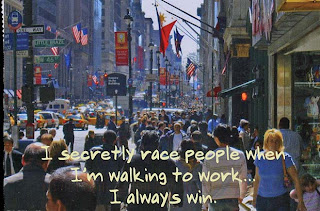The concept of citizen journalism derives from public citizens playing an active role in the process of collecting, reporting, analyzing, and disseminating news and information. Citizen journalism is practiced by professional and non-professional journalists working together. Citizen journalism is a specific form of citizen media as well as user generated content.
 New media technology, such as social
networking and media-sharing websites, and the increasing prevalence of
cellular phones have made citizen journalism more accessible to people all over
the world, who can often report breaking news much faster than traditional
journalistic avenues. Notable examples of citizen journalism being used to
report major world events include the Arab Spring and the Occupy movement. At
the same time, the unregulated nature of citizen journalism has drawn criticism
from professional journalists for being too subjective, amateurish, and
haphazard in quality and coverage.
New media technology, such as social
networking and media-sharing websites, and the increasing prevalence of
cellular phones have made citizen journalism more accessible to people all over
the world, who can often report breaking news much faster than traditional
journalistic avenues. Notable examples of citizen journalism being used to
report major world events include the Arab Spring and the Occupy movement. At
the same time, the unregulated nature of citizen journalism has drawn criticism
from professional journalists for being too subjective, amateurish, and
haphazard in quality and coverage. September 11, 2001 seemed to be the
first time I notice citizen journalism. People all over New York were showing
what they had seen from their point of view. News stations were streaming these
videos on TV and on the web. People were able to show what at that moment they
witnessed. All over the web, you could see various web videos of the event.
People were in shock over what they witnessed. People were also able to see the
hard work our firefighters and rescue personnel put in live as the activity
took place.
September 11, 2001 seemed to be the
first time I notice citizen journalism. People all over New York were showing
what they had seen from their point of view. News stations were streaming these
videos on TV and on the web. People were able to show what at that moment they
witnessed. All over the web, you could see various web videos of the event.
People were in shock over what they witnessed. People were also able to see the
hard work our firefighters and rescue personnel put in live as the activity
took place. With the technologies we have today,
people are able to simply record information on their phone. We often see
videos on the news in poor quality because those videos were from citizen
journalists. It takes time for a news team to get to a site. What they have
missed is covered by citizens. Due to private ownership of social media technology,
it has allowed professional news teams to rely on citizen journalism to report
the news.
With the technologies we have today,
people are able to simply record information on their phone. We often see
videos on the news in poor quality because those videos were from citizen
journalists. It takes time for a news team to get to a site. What they have
missed is covered by citizens. Due to private ownership of social media technology,
it has allowed professional news teams to rely on citizen journalism to report
the news.  In the future I believe citizen
journalism will evolve even more. Look at the popularity of U-TUBE as a prime
example. Many people are beginning to
find that the news is slanted and prejudice depending on who is telling the
news and their political beliefs and agenda. Since most people believe they
cannot trust the news, new websites will be created for people to enjoy what
others have to offer. We will be able to make our own decisions and formulate
more valid opinions based on viewing the facts with our own eyes based on
first-hand citizen journalism. With each new social media technology finding
its way into our hands, we have to ask, "What is next for Citizen
Journalism?"
In the future I believe citizen
journalism will evolve even more. Look at the popularity of U-TUBE as a prime
example. Many people are beginning to
find that the news is slanted and prejudice depending on who is telling the
news and their political beliefs and agenda. Since most people believe they
cannot trust the news, new websites will be created for people to enjoy what
others have to offer. We will be able to make our own decisions and formulate
more valid opinions based on viewing the facts with our own eyes based on
first-hand citizen journalism. With each new social media technology finding
its way into our hands, we have to ask, "What is next for Citizen
Journalism?"















































